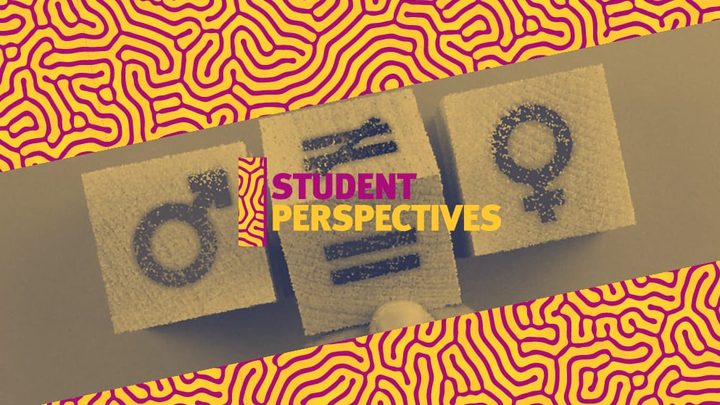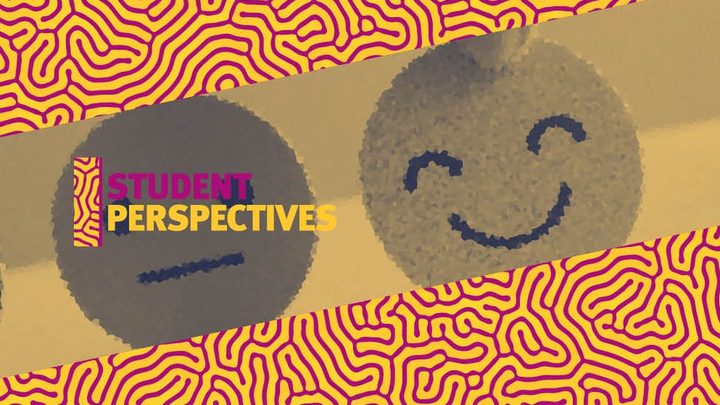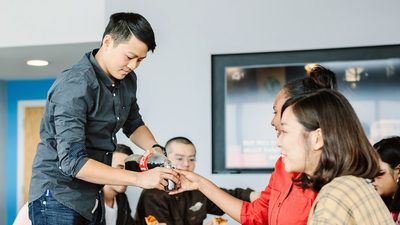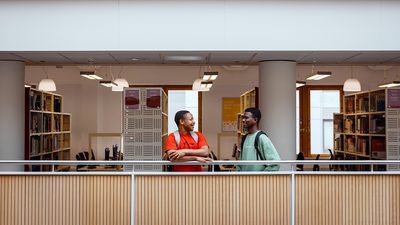For part III of our blog on how our partner universities are contributing to the global coronavirus response, we’ll be focusing on Arizona State University and Simmons University in the USA, and the University of Nottingham in the UK.
Read part I and part II of this series.
Arizona State University
ASU has been a key player in the USA’s coronavirus response since the beginning of the pandemic. Now a $2 million donation from the Virginia G. Piper Charitable Trust has enabled the University to scale up its efforts in 3 key areas:
- Wide-scale testing of frontline workers, including first responders and infrastructure personnel
- Producing innovative saliva-based COVID-19 test kits
- Manufacturing and distributing personal protective equipment (PPE) such as face shields and medical gowns
Arizona State University’s Biodesign Institute has been heavily involved in the University’s work to combat coronavirus so far. Soon after the outbreak began, it stopped its regular activities and in only 2 weeks was able to transform into a fully functional COVID-19 testing centre, test kit production facility and PPE manufacturer.
Now thanks to the combined efforts of the Institute’s 1,144 scientists, staff and students, more than 36,000 Arizonans have been tested free of charge, out of a total of more than 135,000 tests run by ASU. Tests are also freely available on campus to all staff and students as needed.
The University’s innovative, FDA-approved saliva-based test is the first in Arizona. Saliva tests have several benefits over traditional swab tests. For example, swab tests can cause people to cough or sneeze, increasing risk to the person administering the test. Saliva tests, however, can be self-administered at home, avoiding exposure for health care workers.
Saliva tests are also less labour intensive than swab tests, meaning fewer staff are required at testing sites, and less PPE is needed. With personal protective equipment in short supply, this can only be a positive thing — although as you’ll see below, ASU are working address PPE shortages as well.
“Let’s go save some lives.” — Joshua LaBaer, ASU
Share this quote
Until a vaccine is ready, ASU is protecting healthcare workers by using its 3D printing facilities to provide them with protective equipment, such as face shields. That’s not all though — ASU has also launched the PPE Response Network.
This new website connects local medical providers with volunteers from within both the University and the wider community who have the time and resources to manufacture PPE.
Additionally, ASU scientists are working on ways to quickly sterilise equipment using heat and UV light. This will allow healthcare staff to reuse some protective gear, helping to address current shortages.
Perhaps the best way to sum up ASU’s coronavirus response is with the words of Joshua LaBaer, Director of the Biodesign Institute. Every day he tells his team: “Let’s go save some lives.”
Simmons University
Both students and the administration at Simmons University in Boston are getting involved in the local coronavirus response.
For their part, students from Simmons’ Division of Mathematics, Computing, and Statistics (MCS) have been volunteering their time and expertise to a new data project. The students are assisting in collecting data to help track, and hopefully stop, the spread of COVID-19 in the USA.
The COVID-19 Data Project Internship is run by Broadstreet, which aims to use data and community-centred software to further public health. MCS students have been putting their skills to use by working to create a centralised database of COVID cases per county for every day of the pandemic.
Their efforts are vital to track the spread of the coronavirus in the USA, keep on top of local outbreaks and eventually help to flatten the curve.
“It feels good to be doing something purposeful in these crazy times.” — Natalie Starczewski, Simmons University
Share this quote
The project has proved ideal for MCS students keen to use the data science skills they’ve learned in classes. Working alongside 200 other students, statisticians, epidemiologists, healthcare experts and data scientists, Simmons students have excelled.
For example, Natalie Starczewski, set to graduate from Simmons in 2022, started off at the project doing daily data entry. Now, she is working as a team leader for quality assurance, supervising 7 fellow students. She said:
“The dataset produced by this project will stand out because of our rigorous data validation/quality assurance system. It has been a super positive experience and it feels good to be doing something purposeful in these crazy times.“
The community coming together
It isn’t just Simmons students, however, who have stepped in to help. With student dorms lying empty, the administration reached out to the staff of the nearby Boston Children’s Hospital to offer them a free stay.
With many people around the world working from home during the pandemic, it can be easy to forget that most healthcare workers don’t have that luxury.
This is especially true in Boston, a leading city for medical care which is home to 15 acute care hospitals alone. So to make medical workers’ lives a little bit easier, Simmons University is offering 58 single dorm rooms with private bathrooms to Boston Children’s staff for free.
The generous offer also includes internet and cleaning and security services, so guests only need to bring their own sheets and towels!
The Simmons campus is a short walk from the hospital, meaning the offer has been popular with staff normally facing a long commute after a tiring shift. The dorms also provide peace of mind for health workers who want to social distance from family and friends to avoid putting them at risk.
“We can’t thank Simmons enough for this thoughtful collaboration. The campus is beautiful, with a peaceful quad that offers staff a nice respite in their off hours.” — Miranda Day, Boston Children’s Hospital
Share this quote
University of Nottingham
In the UK, the University of Nottingham is also making strides in the national coronavirus response.
Demonstrating how the country’s top institutions are uniting to fight the coronavirus, the University of Nottingham Health Service is busy recruiting volunteers to trial a vaccine developed by the University of Oxford.
However, Nottingham is also working on research of its own: molecular biologists at the University are working with Public Health England to develop an antiviral medication to treat COVID-19.
The University has teamed up with Biotech firm Cyanetics to conduct research into Streptomyces, a bacteria commonly used in antibiotics. Experts believe that Streptomyces have anti-viral properties, and are hoping the project will uncover a strain effective in combatting the SARS-CoV-2 strain of coronavirus behind the pandemic.
Streptomyces live in soil. Cyanetics’ scientists are testing samples from a unique collection curated by the Sustainable Process Technologies Group (SPT) at the University of Nottingham. SPT researchers will be closely supporting Cyanetics in these preliminary lab investigations.
As it is too early to tell if any potential vaccine will offer lifelong immunity to COVID-19, finding effective treatments is clearly very important. Nottingham’s Dr Samantha Bryan, Assistant Professor in White Biotechnology said of the work:
“There is an urgent need to discover new and effective antivirals against SARS-CoV-2. Large-scale screening, such as the one we are undertaking, increases the likelihood of identifying such antivirals.”
Understanding the societal impact of the pandemic
While the search for a cure for coronavirus is clearly vital, it is important that we also understand the impact of the outbreak on society as well. That is why researchers from the University of Nottingham are leading a study examining how the pandemic is affecting working-class women.
We already know that many women balance paid employment with the majority of unpaid domestic work as well. The study aims to understand additional pressures such women are facing due to the pandemic, and how it affects them.
The main areas of focus will be the unpaid support women give to family and friends, increased risk of financial hardship and health problems, higher levels of stress at work and potential job insecurity, and domestic and care work undertaken by women during the pandemic.
Researchers will work with the Women’s Budget Group to identify the policy changes needed to protect vulnerable women from the additional pressures of the pandemic.
In a similar effort, the University of Nottingham has teamed up with Swansea University, the University of Hertfordshire and the University of York to investigate the effects of the national lockdown on female entrepreneurs with children.
Only 1 in 3 entrepreneurs in the UK is female, and recent evidence from the Institute for Fiscal Studies has shown that mothers have taken on the majority of childcare during lockdown, even in 2-parent households. This new university research aims to identify the unique challenges faced by mother entrepreneurs, in order to develop support strategies tailored to their needs.
The UK Treasury recently reported that helping more female entrepreneurs to succeed could add £250 billion to the economy, so this is obviously very important research indeed!






